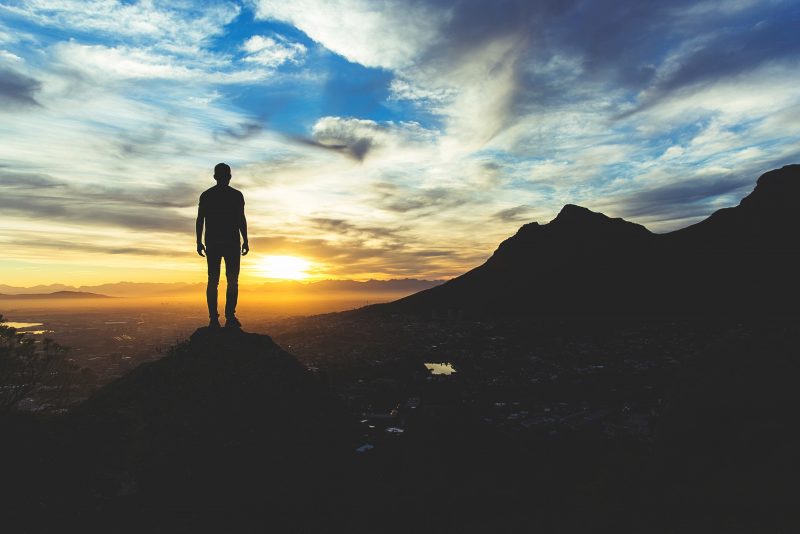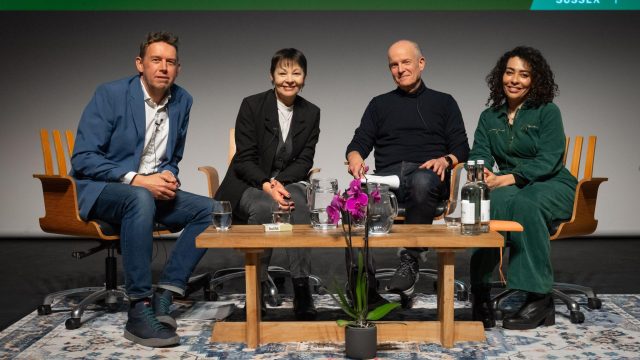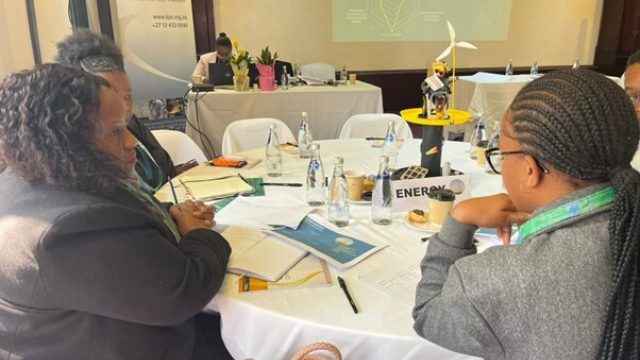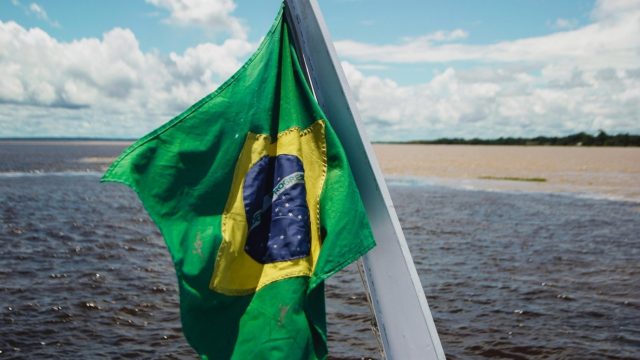
Every once in a generation an iconic leader emerges, someone who embodies the principles and the spirit of the times, overcoming adversity and showing how to navigate forward against seemingly insurmountable obstacles.
Nelson Mandela was one such leader, a giant among men.
Against the backdrop of Robben Island, where Nelson Mandela spent the better part of 27 years in prison before emerging as President of South Africa and a beacon of hope to people around the world, ministers and leaders met to navigate forward against another seemingly insurmountable obstacle; to build pathways for greener and more inclusive economies.
The conference opened with a call to arms, a reminder from world human rights leader Kumi Naidoo that the clock is ticking – not only in terms of an increasingly unstable climate but also in terms of an increasingly unstable inequality; and that to reach the 2030 global goals for ensuring our collective wellbeing - the sustainable development goals – we will need to radically rethink and reshape our economies, our behavior and our wealth.
The backdrop was fitting, as Cape Town itself embodies many of the urgent challenges facing the planet, a microcosm of the looming constraints and barriers that we ourselves have created and inherited. Recently faced with an acute water scarcity, signs were everywhere that not a drop could be wasted.
It was also fitting as the world environmental community lost another true leader in 2018, the late minister Edna Molewa from South Africa.
As we rose for a moment of silence to recognize her life and contributions, I got goosebumps thinking about the enormous space she had left behind, the enormity of our loss. She had brought people together, uniting countries and individuals around the global challenge of sustainability. She was a true champion.
Opening the conference, her successor, Minister Mokowyani, said “ I am walking in the footsteps of a giant.”
“ Nelson Mandela said “everything looks impossible - until it is done.” It is that same spirit and conviction we need now in our lives and in our world to transform ourselves and our economies to make them fit-for-purpose in the 21st century.”
And she was. Like Mandela, Edna Molewa reached across lines seen and unseen to bring people together for a common purpose - enhancing environmental sustainability and raising the issue of the environment from a boutique concern of conservationists to the very core of human well-being and therefore economic policy making.
And as the goosebumps raged across my body, I wondered to myself, what will be our contribution when we go? What will we leave behind when our time comes?
Because here is the thing about giants: though they stand out in crowds and it is easy to see the direction of their footsteps, it is often quite hard to follow them, much less fill their shoes.
How did Nelson Mandela overcome his anger and bitterness of his 27-year imprisonment, and go on and reconcile and unify a deeply divided country?
Overcoming fear, anger, and obstacles imposed from outside and within, these leaders showed us how to build bridges, alliances, and a common purpose to concentrate our minds and unify our actions on one goal: our collective and shared well-being.
These traits are needed more than ever, as the world faces its own looming resource constraints and potential tipping points on climate, nature and the social contract.
As we gathered in Cape Town, and thanks to a lively debate hosted earlier and carried into the ministerial by our colleagues at the Green Economy Coalition, five principles and pathways emerged for advancing sustainable and inclusive economies.
First, it is a journey that must include us all. We cannot enjoy prosperity for the few at the expense of the many. We cannot build walls that would keep out a changing climate or dirty air or water that becomes our common heritage.
Second, it is about walking together. It is only together – building bridges across economic, racial and ideological divides – that we can successfully face the challenges of our generation. Partnerships, like the Partnership for Action on Green Economy, represent a way of scaling our individual and joint actions, distribute them across the many to reshape our world and our economies.
Third, this will require a little bit of humility and a lot of listening. The ability to agree on a common purpose starts with the ability to hear and understand each others’ rich and diverse values and approaches to creating sustainability in our lives.
Fourth, we must build trust. We must learn again to recognize the value in our relationships beyond the transactional. Trust is the social capital that underpins our institutions that shape and guide markets to good economic and social outcomes.
And fifth, it means creating a future that works for all – and in which all can work. One that creates jobs and income, and in which access to education and skills acts to counter wealth-concentrating tendencies that a new generation of information technology and machine learning threatens to propagate.

At the opening of the conference, Guy Ryder, head of the International Labor Organization, quoted Nelson Mandela, saying “everything looks impossible - until it is done.” It is that same spirit and conviction we need now in our lives and in our world to transform ourselves and our economies to make them fit-for-purpose in the 21st century.
This year, 2019, marks the fourth anniversary of the sustainable development goals. In July, countries’ leaders will converge in New York to report on and celebrate the themes of inclusive and sustainable growth, and partnerships. Unsurprisingly, these sit at the core of PAGE and the broader ecosystem of alliances and movements towards sustainability, with partners such as the Global Green Growth Institute.
And like the Green Economy Coalition, which opened the week with a global discussion of how to make sure everyone gets a stake in the transition to an inclusive green economy? And they will underpin efforts, kicked off in Cape Town, to fully align PAGE with the 2030 agenda and radically transform its ability to convene countries and share experiences in forging new pathways towards sustainability.
To walk with giants, we must draw from their strength and commitment and ability to overcome - with joy, with good humor, with knowledge - that many obstacles that we ourselves have created. To walk in the footsteps of giants, we must make ourselves small and humble and rethink what really brings value into our lives.
To shed the baggage of what E.F. Schumacher called the legacy of 19th century thinking, based on social Darwinism, Newtonian physics as the foundation of economics, and “enlightened” self-interest.
2019 is likely to be, again, one of the hottest years in history, if the current summer ice melt in Antarctica is any indication. So we need to get the gears in motion.
And that means finding new pathways forward. Like the Cape Town Action Pathways, that can lead us forward to 2030 and beyond. Thankfully, we have giants to in whose footsteps we can follow.
- Steven Stone, UN Environment
This article is re-posted with permission from the Green Growth Knowledge Platform.


